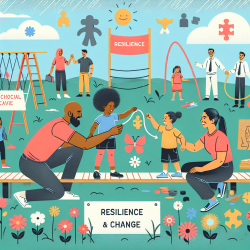Becoming a Licensed Clinical Social Worker (LCSW) in Wisconsin can seem like a daunting task, but with the right information and guidance, you can navigate the process smoothly. At TinyEYE, we understand the importance of having qualified professionals in schools to provide much-needed support to students. Here's a breakdown of the essential requirements and steps you need to take to become an LCSW in Wisconsin.
Educational Requirements
To qualify for licensure, you must have a Master's or Doctorate degree in social work with a concentration in clinical social work. Your course of study should include:
- One course in psychopathology in social work
- Two theory and practice courses from the following options:
- Case Management
- Clinical assessment and treatment of specific populations and problems (e.g., children, adolescents, elderly, alcohol and drug abuse, family or couples relationships)
- Psychopharmacology
- Psychotherapeutic Interventions
- Electives such as family therapy, social work with groups, sex- or gender-related issues, and other topics
Supervised Experience Requirements
After completing your degree, you need to accumulate at least 3,000 hours of supervised clinical social work experience, including at least 1,000 hours of face-to-face client contact. This experience must include DSM diagnosis and treatment of individuals under the supervision of an approved supervisor, such as:
- A Licensed Clinical Social Worker with a Doctorate or Master's degree in social work
- A Licensed Clinical Social Worker with five years of full-time clinical social work experience
- A Psychiatrist or Psychologist
- Another individual approved in advance by the Social Worker Section
Application Process
Your application is not complete until you have submitted all the required documents, including:
- Completed LicensE online application for Clinical Licensed Social Worker
- Payment of applicable fees online via LicensE
- Official transcript showing your Master's or Doctorate degree (sent directly from the school)
- Documentation of post-graduate clinical experience (Form #2560), completed by and sent directly to the Department by each supervisor
- Verification of clinical coursework (Form #2673)
- Verification of ASWB examination scores (score information must be sent directly from ASWB)
- Convictions and Pending Charges (Form #2252), if applicable
- Malpractice Suits or Claims (Form #2829) and copies of malpractice suit, court documents with allegations and settlement, if applicable
Temporary License
If you have completed all the requirements except the ASWB national exam, you can apply for a temporary license. This temporary license permits you to practice and use the "Clinical Social Worker†title for nine months from the date of issuance. It expires upon notification of successful completion of the examination or expiration of the nine-month period, whichever is earlier.
National Examination - ASWB
The ASWB examination is required for all eligible applicants. If you have already taken the ASWB examination for the same level you are applying for in Wisconsin, your score will be accepted if sent directly from ASWB. The Department will forward authorization to ASWB and provide examination instructions once all requirements have been met. The ASWB examinations are administered year-round at specific sites within the state.
Reciprocal Applicants
If you are applying by reciprocity, your application will be based on the jurisdictional standards of the state you are coming from compared to Wisconsin's requirements. If your state's requirements do not appear to be equivalent, you may consider applying by exam or initial licensure.
Conclusion
Becoming a Licensed Clinical Social Worker in Wisconsin requires careful attention to educational and supervised experience requirements, as well as the completion of a thorough application process. By following these guidelines, you can achieve your goal of providing essential support to students in need. For more information, please follow this
link.










